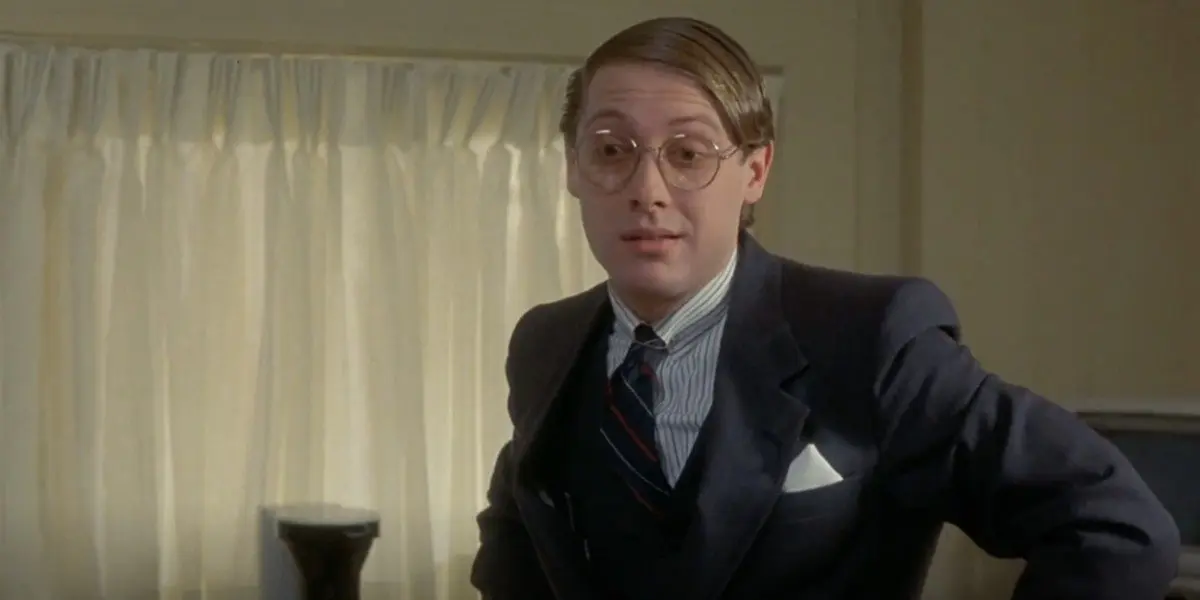That sneer. You know the one.
James Spader perfected it somewhere between prep school corridors and corporate boardrooms, turning what should have been forgettable bad guys into cinema's most magnetic villains. While other actors chased likability, Spader embraced the shadows.
His 80s and 90s performances didn't just steal scenes—they redefined what screen villainy could be. Intelligent. Seductive. Terrifyingly plausible.
The Prep School Predator
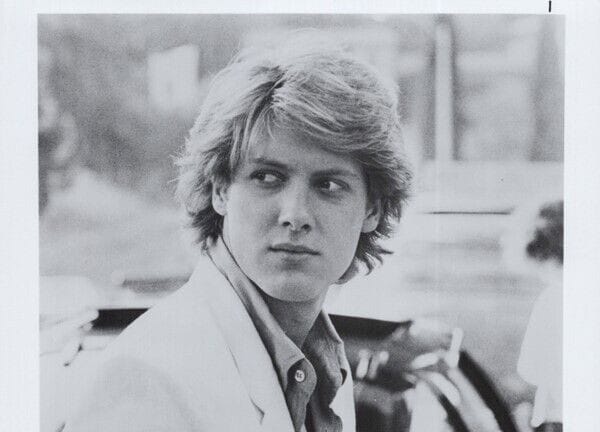
Pretty in Pink (1986) – Steff McKee
Rotten Tomatoes: 76% | IMDb: 6.7/10
"If you can't be famous, be infamous." Spader made Steff McKee both.
Every word dripped with silver-spoon contempt. His delivery turned simple dialogue into weapons of class warfare. You hated him. You couldn't stop watching him.
John Hughes needed a villain who embodied Reagan-era privilege. Spader gave him something deeper—a character whose cruelty felt earned, not scripted.
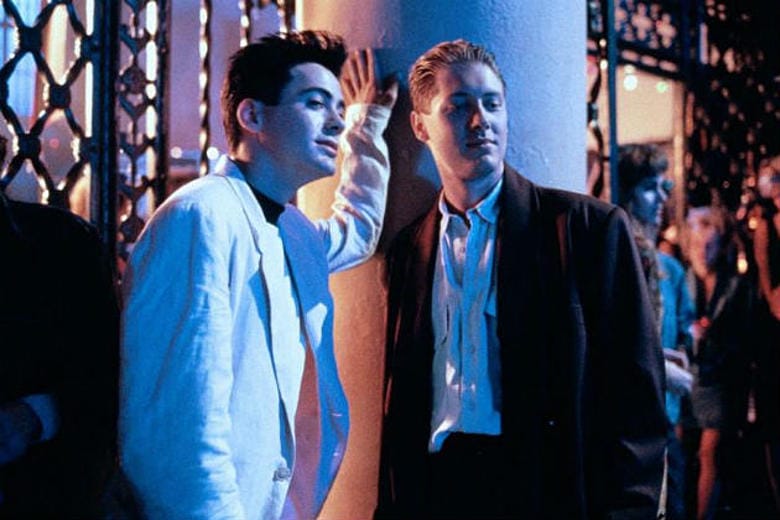
Less Than Zero (1987) – Rip
Rotten Tomatoes: 46% | IMDb: 6.4/10
Rip wasn't just evil. He was inevitable.
Spader transformed Bret Easton Ellis's one-dimensional drug dealer into something genuinely unsettling. No theatrical villainy here—just quiet menace that built with each scene. The film stumbled, but Spader never did.
His final confrontation remains one of cinema's most chilling moments. Pure predator, wearing a human face.
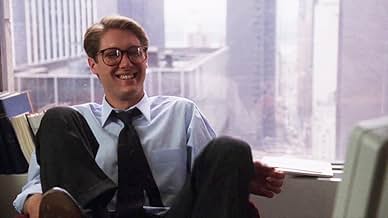
Wall Street (1987) – Roger Barnes
Rotten Tomatoes: 79% | IMDb: 7.3/10
Even Gordon Gekko had to share space with Spader's Roger Barnes.
Limited screen time? Irrelevant. Spader crafted a complete character in mere minutes—another corporate shark, but one who genuinely enjoyed the hunt. Oliver Stone's ensemble was packed with talent. Spader still stood out.
Discover More Hollywood Legends
From unforgettable performances to hidden gems - explore our curated lists of iconic actors from the golden era of cinema. Relive the magic of the 70s, 80s, and 90s through the stars who defined these decades.
Explore Actor Rankings →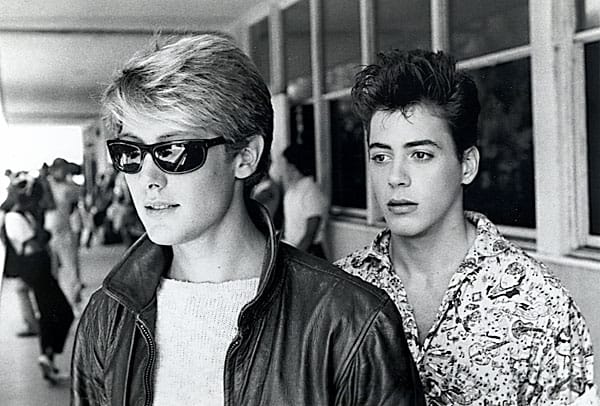
Tuff Turf (1985) – Morgan Hiller
Rotten Tomatoes: 17% | IMDb: 6.0/10
Critics savaged it. Audiences discovered a star.
Before the villains, Spader played the hero in this forgotten teen drama. Morgan Hiller showed glimpses of the intensity that would define his career—rebellion with intellectual edge. The film flopped, but Spader's charisma was undeniable.
Sometimes greatness emerges from the strangest places.
The Art House Revolution
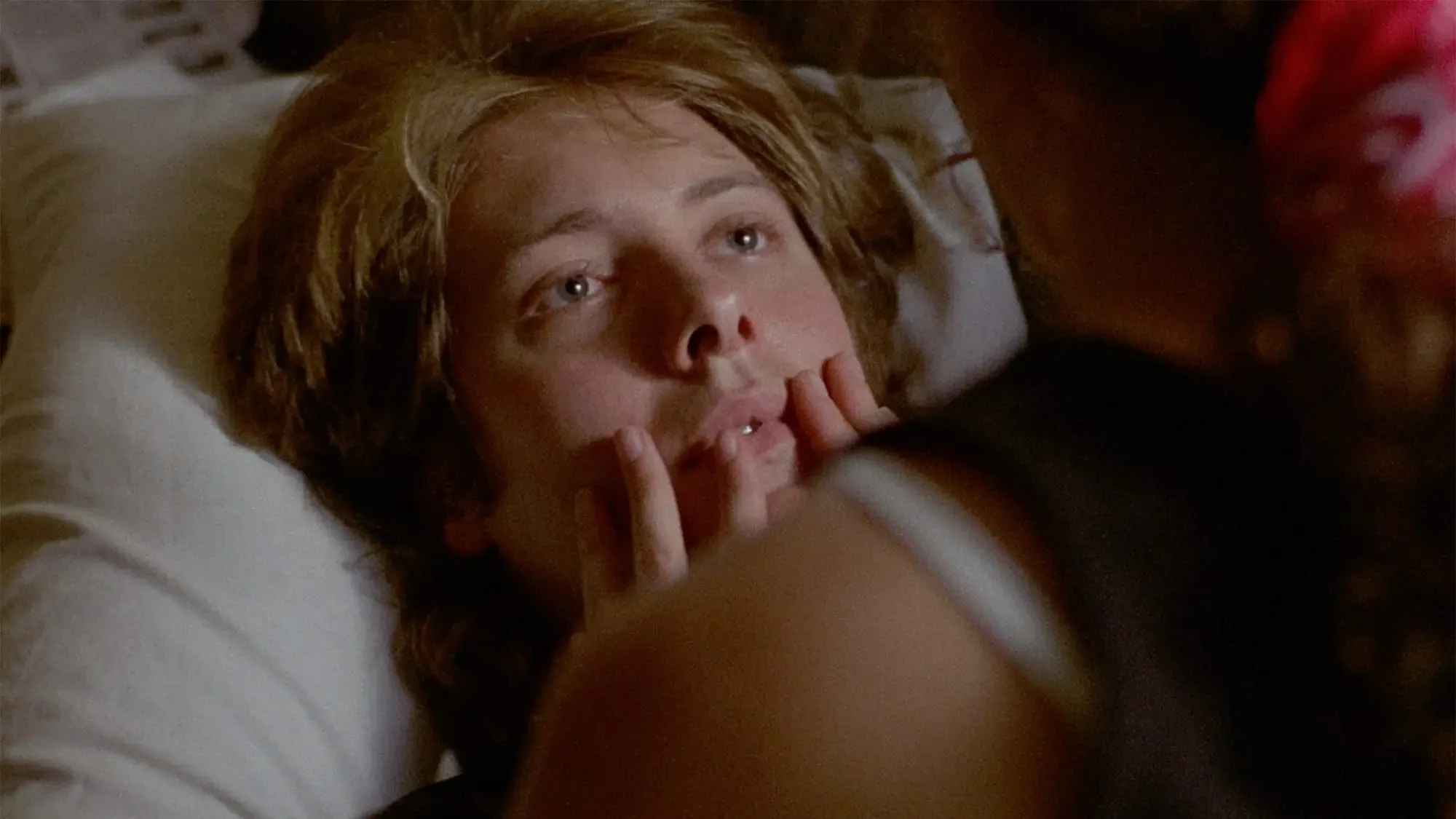
Sex, Lies, and Videotape (1989) – Graham Dalton
Rotten Tomatoes: 96% | IMDb: 7.2/10
Cannes doesn't usually reward American actors. They made an exception.
Steven Soderbergh handed Spader his most complex role—a voyeur exploring intimacy through technology. No easy answers, no simple motivations. Just a damaged man trying to connect.
Spader stripped away the polished menace of his 80s work. What remained was raw, vulnerable, and completely compelling. His career pivot, captured in celluloid.
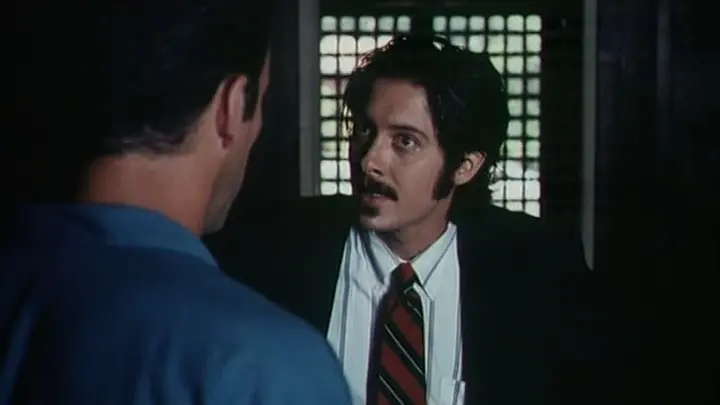
The Music of Chance (1993) – Jack Pozzi
Rotten Tomatoes: 100% | IMDb: 7.0/10
Perfect critical score. Nearly invisible to audiences.
Spader balanced desperation and charm as gambler Jack Pozzi, navigating this surreal tale with complete commitment. While mainstream cinema ignored such experimental work, Spader proved his range extended far beyond traditional boundaries.
Art house audiences got to see what blockbuster films missed—an actor unafraid of challenging material.
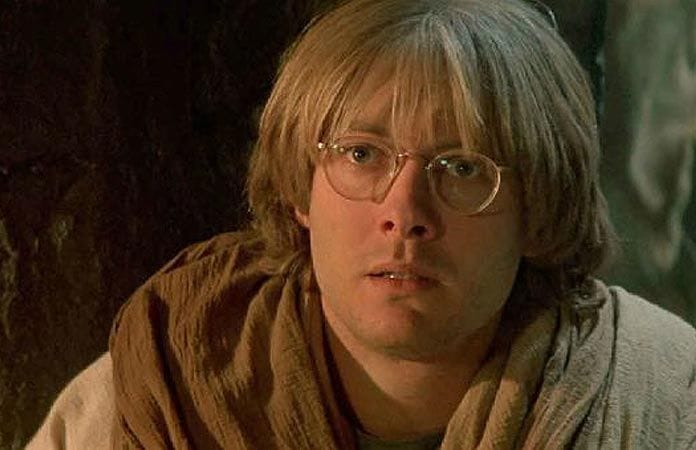
Stargate (1994) – Daniel Jackson
Rotten Tomatoes: 60% | IMDb: 7.0/10
Blockbuster territory. Spader made it work.
Daniel Jackson could have been generic—the brainy archaeologist thrust into adventure. Spader found the humanity in exposition, the wonder in discovery. His nervous energy grounded the film's wilder moments.
The TV series ran for years, but Spader's original interpretation remains definitive.
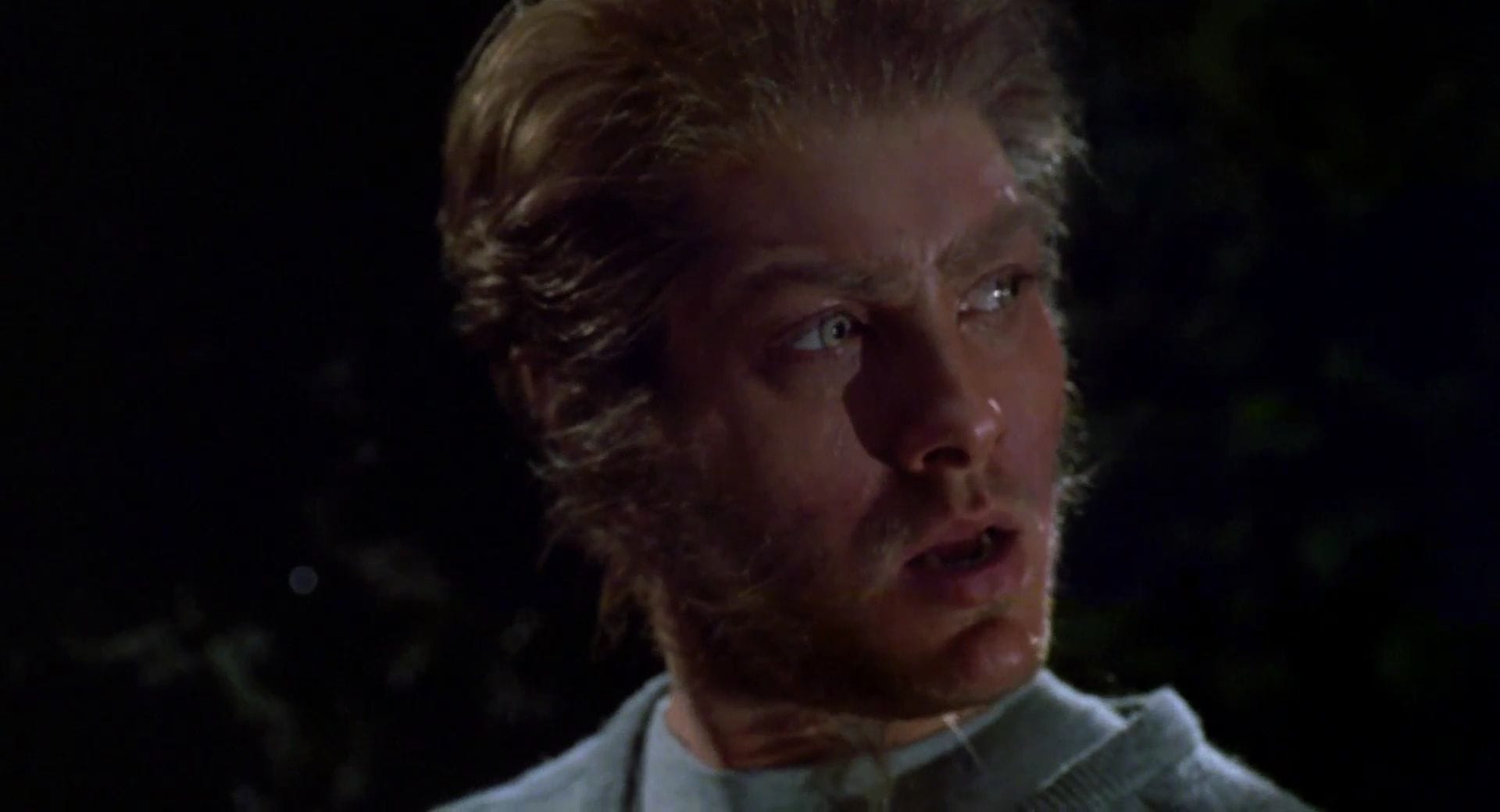
Wolf (1994) – Stewart Swinton
Rotten Tomatoes: 61% | IMDb: 6.2/10
Corporate lycanthropy. Mike Nichols directing. Spader as the office predator.
Stewart Swinton embodied everything wrong with 90s corporate culture—ambition without conscience, charm without soul. Spader made him terrifyingly recognisable. We all knew a Stewart Swinton.
You Might Remember This If...
You rewound his Pretty in Pink scenes, studying that perfect sneer. Less Than Zero played on late-night cable while you wondered how someone could be simultaneously attractive and terrifying. The video shop clerk recommended Sex, Lies, and Videotape when you asked for "something different."
Spader represented the thinking person's bad boy—dangerous not through violence, but through intelligence.
You May Also Like
The Lasting Impact
James Spader didn't follow trends. He created them.
His gallery of villains and antiheroes influenced a generation of actors and filmmakers. The intellectual predator. The charming sociopath. The damaged genius seeking connection.
From teenage antagonist to complex leading man, Spader never lost the intensity that made him unique. Even career missteps became cult classics through sheer force of personality.
These performances remind us when cinema dared explore uncomfortable truths about power, privilege, and human nature. Spader was our guide through those shadows—and we never looked away.

